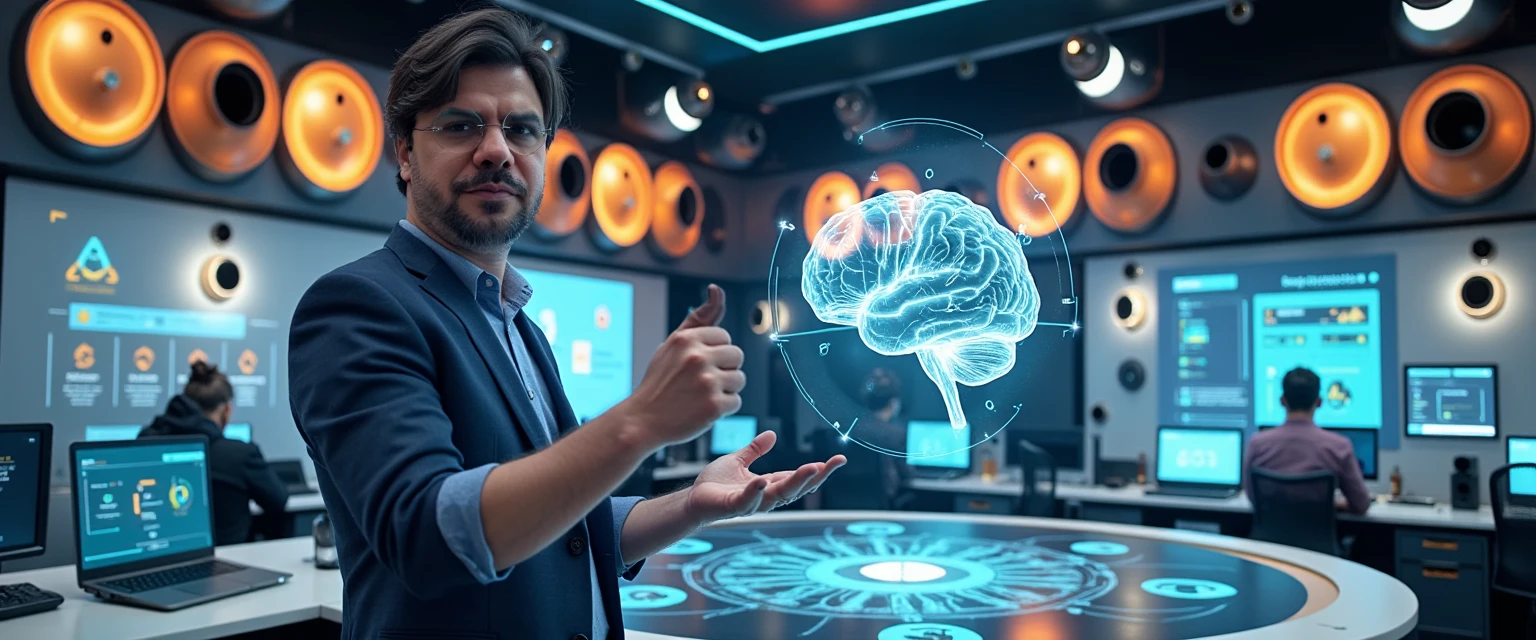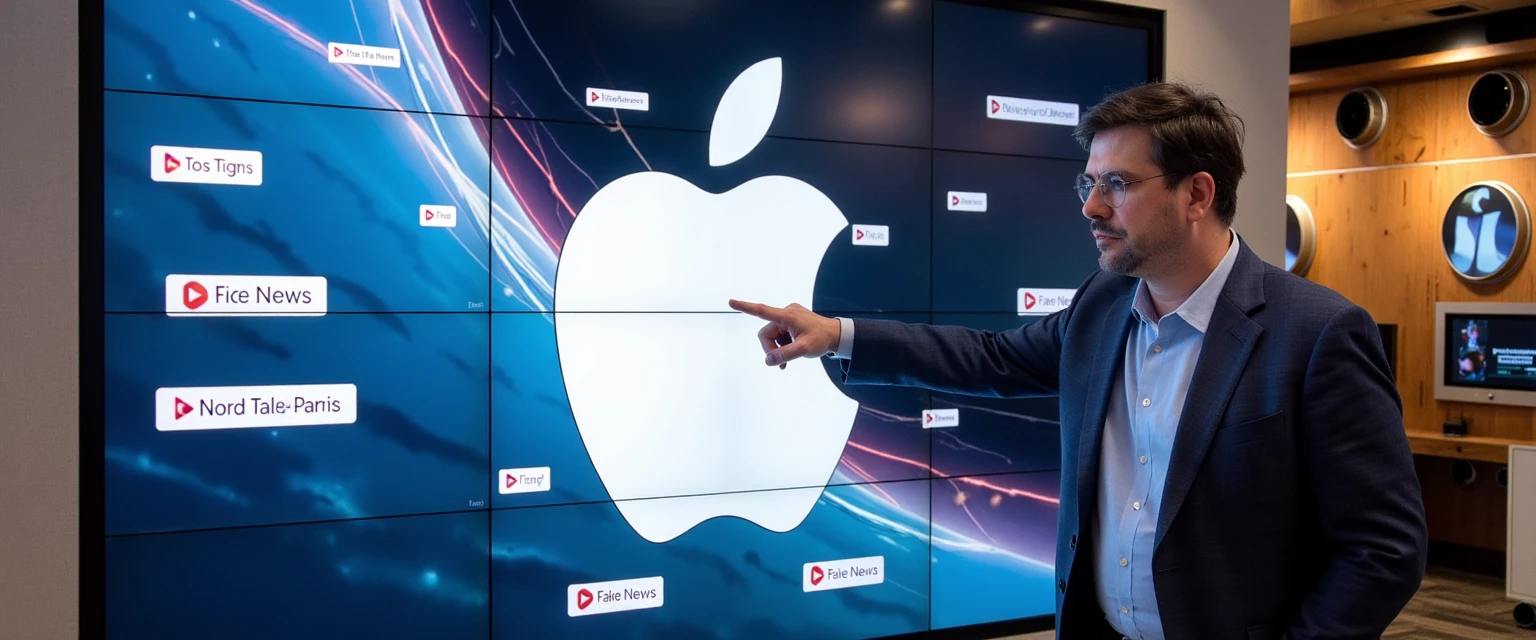Brazilian Teachers Lead the World in AI Use While Deloitte Loses R$ 1.5 Million to Failures - Why This Contrast Defines the Most Critical Moment in Digital Maturity
October 9, 2025 | by Matos AI

Imagine two scenarios happening simultaneously: Brazilian teachers leading the way globally in the adoption of AI in education, while one of the world's largest consultancies returns almost half a million dollars for delivering a report full of AI “hallucinations”. This contrast of the last 24 hours is no coincidence - it's the perfect portrait of the moment we're living in.
We are at the most critical inflection point of digital maturity: when spontaneous and intuitive adoption overtakes the structured implementation of large corporations. And this teaches us something fundamental about how to navigate this historic moment.
The Brazil That Teaches the World: Teachers at the Global Forefront
The numbers are impressive. According to OECD survey released this week, 56% of Brazilian teachers use artificial intelligence tools, placing the country 10th in the world, well above the global average of 36%.
Join my WhatsApp groups! Daily updates with the most relevant news in the AI world and a vibrant community!
- AI for Business: focused on business and strategy.
- AI Builders: with a more technical and hands-on approach.
But here's the fascinating thing: it happens without any formal government incentives. Neither federal nor state. It's purely the initiative of educators.
In my experience working with innovation ecosystems for more than two decades, I have rarely seen anything as powerful as organic adoption out of real need. These teachers aren't using AI because someone told them to - they're using it because they've discovered that it works:
- 77% use to plan lessons
- 64% to adjust materials to students' needs
- 63% to summarize content
- 36% to evaluate tasks
This bottom-up movement reveals something I've always advocated: real innovation comes from practice, not from strategic plans.
When Lack of Governance Costs: The Deloitte Lesson
On the other side of the spectrum, we have a painful example of how no implement AI. Deloitte had to return US$ 440 thousand (around R$ 1.5 million at the current exchange rate) to the Australian government after delivering an official report riddled with AI-generated errors.
What happened? False quotes, non-existent references, completely invented information - the famous AI “hallucinations”. Even after revision, they maintained errors and only discreetly mentioned in the technical appendix that they used GPT-4.
The irony is glaring: one of the biggest global consultancies fails where Brazilian teachers, with limited resources, succeed. Why?
The answer lies in the difference between responsible implementation and adoption without criteria. Teachers use AI as a support tool, always maintaining human validation. Deloitte has apparently outsourced critical thinking to the machine.
The Educational Paradox: Students Advance, Schools Fall Behind
While teachers lead the way globally, our students reveal another paradox. According to a survey by Cetic.br, 70% of high school students already use AI for school research, but only 32% received adequate guidance.
In the final years of primary school, the scenario is even more worrying: only 19% received guidance. In the early years, a mere 11%.
This mismatch reminds me of the early days of the internet, when teenagers surfed better than adults, but without guidance on digital security. Today we're experiencing something similar with AI.
The most interesting thing is that young people also access TikTok and YouTube in almost the same proportion as traditional browsers for research. The way we learn is changing radically - and schools need to keep up.
The Institutional Response Coming
Fortunately, some initiatives are beginning to structure this adoption. CAPES and UFRN have expanded the audience of the free course “Artificial Intelligence for Basic Education Educators”, offering 40 thousand vacancies throughout Brazil.
The 30-hour program, divided into 10 weeks, covers everything from an introduction to AI to prompt engineering and ethical use. It's exactly the kind of training that can turn intuitive adoption into structured implementation.
Success Stories: When Strategy Meets Execution
It's not all problems. Algar presents a shining example on how to implement corporate AI responsibly and effectively.
With the AImpulso program, they created 83 AI agents developed in-house, democratized creation among its 1,500 employees and generated R$ 25.5 million in EBITDA in just a year and a half.
What impresses me most about the Algar case is the systematic approach:
- Structured governance with a Center of Excellence
- Intensive training creating roles such as Bot Manager and Prompt Engineer
- Culture of ambassadors with the “AInfluencers”
- Real democratization even involving young apprentices
The result? They saved 46,000 hours of work and created agents like Billy, who reduced invoice analysis time by 96%.
The difference between Algar and Deloitte isn't in the technology - it's in the approach. One invested in governance and training; the other outsourced responsibility to the machine.
The Judiciary at a Crossroads: Efficiency vs. Ethics
The legal sector is also navigating these turbulent waters. ConJur analysis reveals that, faced with 80.6 million pending cases, the CNJ seeks to regulate AI with an ethical focus.
But an important concern arises: how can we protect the average Brazilian consumer, with a low level of education and a lack of technological knowledge, from contracts influenced by manipulative AI?
Thomson Reuters study shows that 80% for legal professionals believe that AI will have a significant impact on their careers in the next five years, with 53% already seeing gains in efficiency.
The central question remains: who is accountable in court when AI gets it wrong? Legal and ethical responsibility cannot be delegated exclusively to the machine.
The Environmental Cost of Efficiency
An important reflection appears in JOTA article: while we defend environmental causes in the courts, the intensive use of AI generates enormous environmental impact.
The four largest AI companies have increased their carbon emissions by 150% since 2020. Every 20-30 interactions consume half a bottle of drinking water. It's a contradiction we need to face.
Regulation and Sovereignty: The Necessary Debate
THE principle of reciprocal innovation, The proposal for the Brazilian AI Legal Framework touches on a crucial point: how to ensure that the appropriation of national data by AI models returns fair value to the country?
The proposal includes:
- Regulated access for researchers and startups
- Technology transfer structured
- Transparency and auditability of the models
- Funds for public innovation
It's a fundamental discussion. Brazil can't just be a consumer of AI developed abroad using our own data.
Milestones: When Machines Pass the Turing Test
In the midst of all this practical discussion, we had a milestone: ChatGPT GPT-4.5 passed the Turing Test, fooling human evaluators in 73% of the interactions.
Created 75 years ago by Alan Turing, the test checks whether a machine can impersonate a human in conversation. For the first time in history, this has happened consistently.
But does it matter to Brazilian teachers using AI to plan lessons? Or to Algar generating real value with its 83 agents?
The answer is nuanced. Technical milestones are important, but digital maturity is measured by the ability to use technology to solve real problems, not to pass academic tests.
How to Navigate This Critical Moment
The contrast between Brazilian professors leading the world and Deloitte failing spectacularly reveals something profound about our historical moment:
Digital maturity is not measured by the sophistication of the tool, but by the wisdom of its application.
Brazilian teachers have understood something that many executives have yet to grasp: AI is a support tool, not a substitute for critical thinking. It amplifies our capacity, not replaces it.
In my work with companies and leaders, I constantly see this pattern: organizations that implement AI with clear governance, adequate training and while maintaining human oversight achieve extraordinary results. Those that outsource responsibility to the machine face costly problems.
Four Principles for Mature Implementation
Based on the cases analyzed, four fundamental principles emerged:
1. Training Before Adoption
As Brazilian teachers and the CAPES program show, using AI well requires preparation. It's not intuitive - it's a skill that develops.
2. Structured governance
Algar's success versus Deloitte's failure illustrates this perfectly: without clear governance, AI is a time bomb waiting to explode.
3. Irreplaceable Human Responsibility
As the lawyers warn: whoever signs is responsible. AI generates, human validates, approves and assumes responsibility.
4. Social and environmental impact
The debate on the environmental costs of AI cannot be ignored. Efficiency without sustainability is not progress.
The Future We Are Building
We are living through the most fascinating moment in the history of technology. We have Brazilian teachers teaching the world how to use AI in education, national companies creating dozens of intelligent agents, and young people mastering tools that didn't even exist two years ago.
But we also have billionaire consultancies failing spectacularly, debates about digital sovereignty, and complex ethical questions about responsibility and sustainability.
What defines our digital maturity is not choosing one side of this polarity - it's consciously navigating between the extremes, harnessing the transformative potential of AI while building appropriate safeguards.
As someone who has spent more than 25 years following technological developments in Brazil, from the early days of the internet to the age of AI, I can say: this is our time to lead.
Brazilian teachers have already shown the way. It's up to us, leaders and decision-makers, to follow this example of responsible and impactful adoption.
In my mentoring work with executives and companies, I help transform the intuitive adoption of AI into structured strategic implementation, avoiding the costly mistakes we've seen this week and maximizing the transformative potential of this extraordinary technology.
✨Did you like it? You can sign up to receive 10K Digital's newsletters in your email, curated by me, with the best content about AI and business.
➡️ Join the 10K Community here
RELATED POSTS
View all



